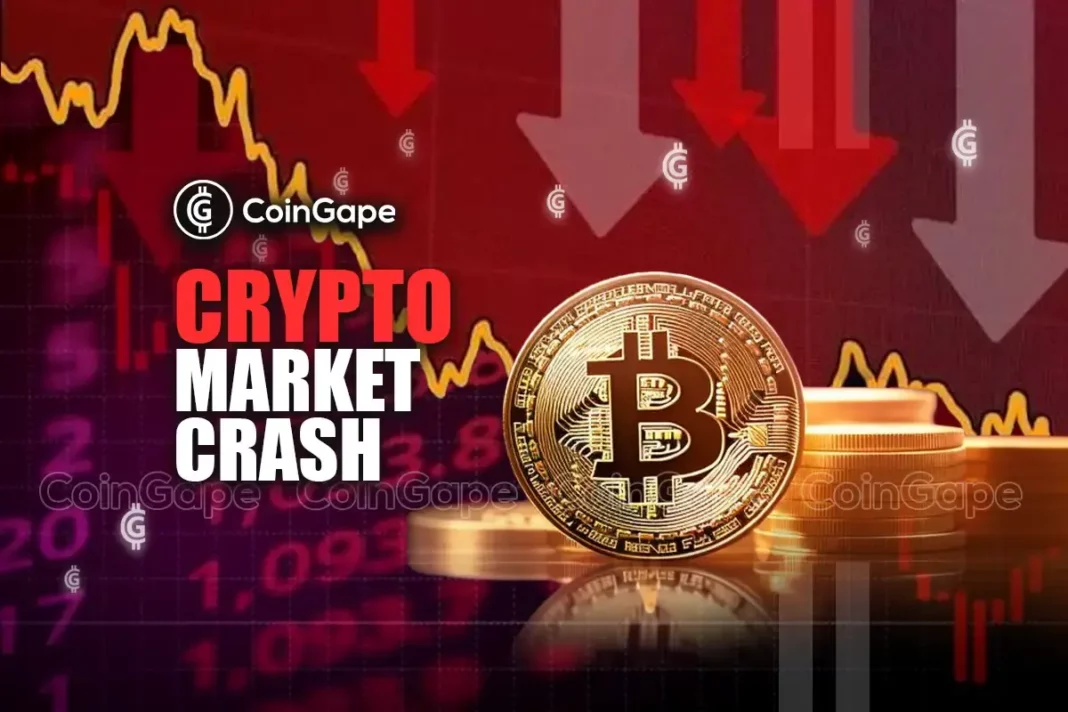The German government’s Bitcoin (BTC) liquidations has catalyzed a crash. Moreover, the impending repayment of Bitcoin (BTC) by Mt. Gox, referred to in Chinese as Mentougou, have sparked concerns of a further downtrend. With over 138,000 BTC still held in its accounts as of July 12, the implications of Mt. Gox’s actions could significantly impact market dynamics in the coming months.
Mt. Gox Compensation To Expedite Bitcoin Crash?
According to Cycle Capital analysis, the manner in which Mt. Gox decides to liquidate these assets will dictate market reactions. It risks further downturn if the compensation sales are executed swiftly, akin to the German government’s recent $2.5 billion sale. Furthermore, a bigger Bitcoin crash would be in and the current market inflows aren’t enough to balance the situation.
This scenario reflects the current sentiment that existing ETF demand may not absorb the influx of Bitcoin supply efficiently, potentially leading to a market downturn. However, Bitcoin ETFs have registered five consecutive days of inflows with over $880 million influx. Nevertheless, Cycle Capital analysts believe that this influx isn’t enough to balance the liquidation that could ensue after Mt. Gox repayments.
Currently, with over 138,000 BTC in Mt. Gox reserves, repayments over a month could mean that every day more than 4,300 BTC could hit the market. When German government initiated their Bitcoin selloff spree, a few hundred BTC was dumped to exchanges. This quickly turned the market sentiment bearish.
Hence, with the market already experiencing FUD owing to the government’s liquidation, the Mt. Gox payout could make the situation worse. The collapsed exchange’s creditors are awaiting their BTC reserves since 10 long years, which could lead to panic selling due to desperation.
In contrast, if Mt. Gox prolongs its compensation process over 2-3 months, the daily Bitcoin offloading may be more manageable. This approach could prevent a Bitcoin crash but may also suppress short-term price surges. Thus, it could lead to a ‘boring’ market outlook in the near future.
Also Read: German Govt. Now Only Has 9,094 Bitcoins To Sell; Is the Bottom in?
The Other Side
Doctor Profit, a noted crypto analyst on X, highlighted the bullish impact of such large-scale repayments. He suggested that while $16 billion USD from FTX could inject bullish momentum into the market. Moreover, the timing and execution of these repayments will be crucial in determining their actual market influence.
“The most bullish news right now, overshadowed by a flood of fear and negativity, are the newly issued FTX bankruptcy documents,” remarked Doctor Profit. He added, “Compare this to the German government’s selling of $1.5 billion sale that is causing chaos right now. Markets expect an inflow of $16bn in USD, which hasn’t been fully priced in yet.”
The implications for Bitcoin price are significant. Analysts anticipate scenarios where market makers might strategically pump prices to coincide with the influx of $16 billion USD. This could potentially push BTC towards targets between $86,000 and $92,000 just ahead of creditor repayments.
Alternatively, a sustained bullish trend into Q3 and Q4 could see BTC prices ranging between $80,000 and $100,000, as optimism and FOMO (Fear of Missing Out) drive market sentiment upwards. “Regardless of the scenario, BTC price targets remain in the range of $80,000 – $100,000,” emphasized Dr. Profit. “This outlook applies equally to potential Mt. Gox repayments, given similar market dynamics at play.”
The FTX incident is just 2 years old, hence, the creditors are less prone to panic selling. Since Bitcoin price has tripled since the FTX crash, they are expected to hold their reserves. However, it’s the complete opposite with Mt. Gox creditors who might liquidate their holdings to realize profits.
Also Read: Bitcoin Selloff Intensifies As German Govt. Offloads 3450 BTC To Exchanges
The presented content may include the personal opinion of the author and is subject to market condition. Do your market research before investing in cryptocurrencies. The author or the publication does not hold any responsibility for your personal financial loss.







